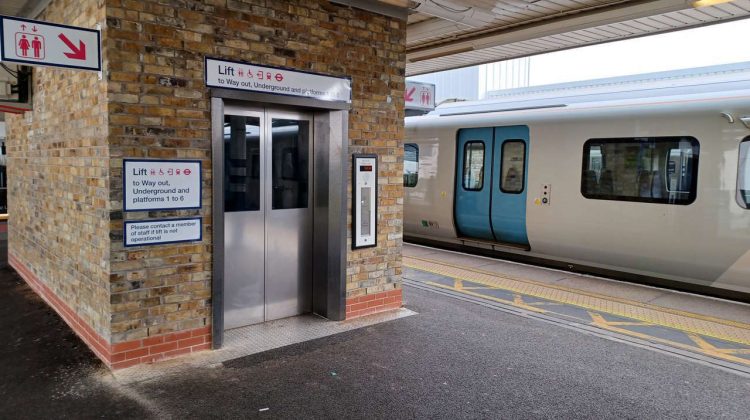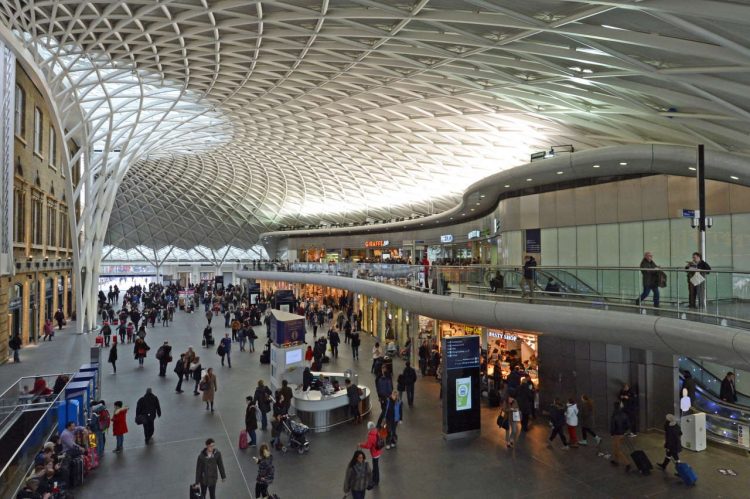Govia Thameslink Railway and the Thomas Pocklington Trust have taken an initiative which they hope will increase blind and partially sighted people’s understanding of and confidence in travelling by train.
A group of seven blind or partially sighted Sight Loss Council members took part in a ‘Try A Train’ trial event held by the two organisations. The trial took place at three major London stations, selected because they are particularly busy, which can make them difficult to navigate.
A team of station supervisors and managers met the group as they travelled by train between King’s Cross, Finsbury Park and St Pancras stations. The supervisors showed the group all the facilities and assistance available, including where to find staff, toilets and lifts, and the availability of help points on platforms, from which a passenger can contact a member of staff who can monitor them via CCTV.

On board the trains, staff showed the group facilities including accessible toilets, and features including how to contact the driver using the passenger communication alarm.
At Finsbury Park, staff showed the group how to navigate the station, including using new lifts and links with bus and London Underground services.
Thomas Pocklington Trust funds Sight Loss Councils in regions. Led by blind and partially sighted volunteers, they advocate for the needs of blind and partially sighted people and work with organisations to ensure that what they do is accessible and inclusive.
There are around twenty SLCs across the country, with more planned to start over the next year. They meet monthly to discuss accessibility issues and plan projects in their regions under priority themes. All SLCs address national themes of accessible public transport and street safety, both of which are crucial to independent living.
The Trust points out that around twenty percent of blind and partially sighted people report issues relating to travel,
transport and mobility. When surveyed, they regularly report a significant feeling of loss or lack of independence.

More information about Sight Loss Councils is available here. Information about joining a Sight Loss Council is available here.
Harry Meade, a Sight Loss Council member from London who attended, said: “I do feel that other blind and partially sighted people would find a tour like this illuminating and useful. This is especially true for those who are less confident travellers.
“Navigating a busy station has always been a problem for me so I would always seek the assistance that is on offer.”
Lucy Williams, Senior Engagement Manager for Thomas Pocklington Trust, said: “Sight Loss Councils across England are prioritising making transport accessible because blind and partially sighted people have told us being able to travel independently and safely matters to them the most.
“We are pleased to be working with Govia Thameslink Railway to help shape an event specifically for blind and partially sighted people, and their commitment to increasing accessibility and confidence to travel.
“Our members definitely found the event useful and feel it would benefit others.”
Antony Merlyn, Accessibility Manager at Govia Thameslink Railway, said: “The core purpose of these trips is to encourage independent travel and to help overcome any potential barriers. We will always tailor the event around what the groups want to explore. This was a good trip; I felt it made a real difference and we are very happy to host more of them.”






Responses